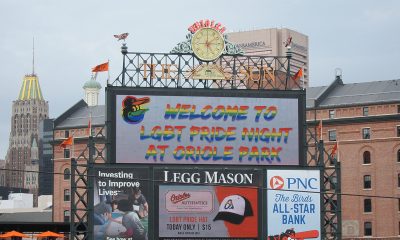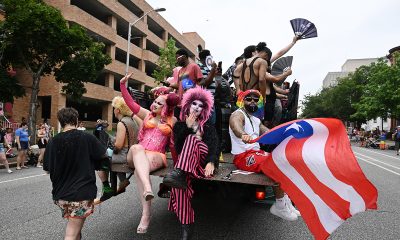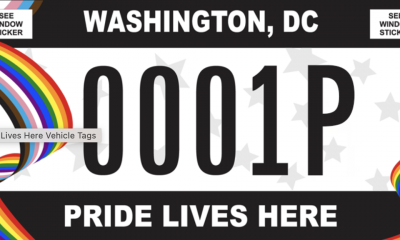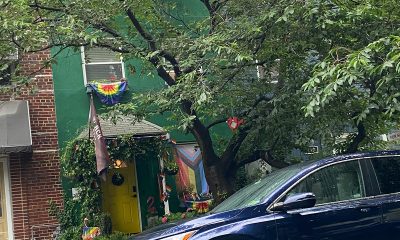District of Columbia
Naval Academy midshipmen serve as Rainbow History Project interns
D.C. group says support symbolizes evolution of LGBTQ community
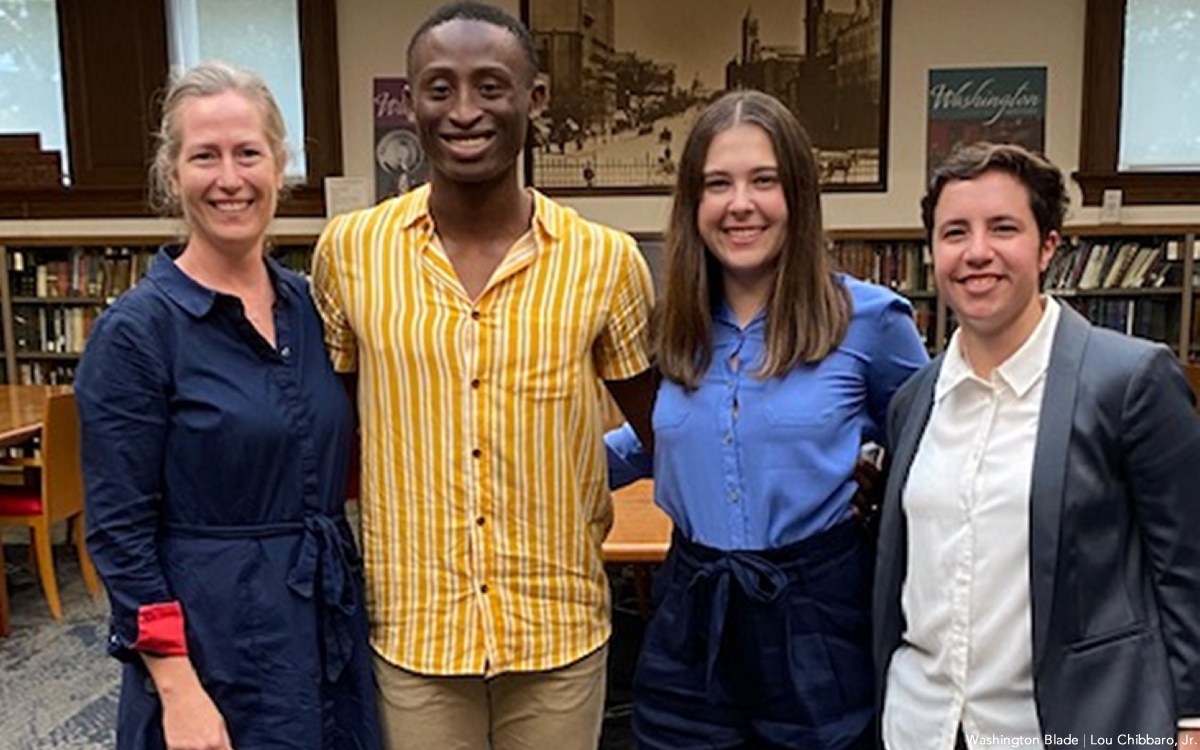
Vincent Slatt, director of archiving of D.C.’s Rainbow History Project, says he and other members of the group’s board were pleasantly surprised in 2017 when a professor at the U.S. Naval Academy in Annapolis, Md., invited members of the group to speak to a class she taught on LGBTQ studies.
Slatt told the Washington Blade the presentation that he and other Rainbow History Project members gave went very well, and the group’s interaction with the professor and the academy led to what he believes was an important step in the D.C. LGBTQ history group’s evolution.
In May of this year, three Naval Academy midshipmen became student interns for the Rainbow History Project as part of a four-week program to process and organize several dozen boxes of documents donated by the D.C. LGBTQ youth advocacy group SMYAL. According to Slatt, the midshipmen did an excellent job of organizing the SMYAL documents by putting them in folders and new professional archival standard boxes.
“And they created what’s called a finding aid to describe the collection,” Slatt said, noting that a finding aid is used by researchers who access Rainbow History Project’s collections in the way that people use a table of contents or an index to navigate a book.
In addition to working on the SMYAL documents, the Naval Academy interns – Midshipmen Brahmir Vick, Caroline Bilbray-Kohn, and Hannah Nunes – also conducted what Slatt says is another crucial component of Rainbow History Project’s mission. They transcribed more than 25 audio recordings of oral history interviews of LGBTQ people from the D.C. metro area that make up another important part of Rainbow History Project’s collections.
The three midshipmen in June completed their second year at the Naval Academy’s four-year studies program from which they will graduate in 2024 as commissioned officers with a bachelor of science degree.
Each of them gave a presentation on the specific work they did as Rainbow History Project interns at a June 23 event hosted by the DC History Center located in the city’s historic Carnegie Library building at 801 K St., N.W.
Slatt points out that in yet another important part of Rainbow History Project’s evolution since its founding in 2000, it entered a partnership with the DC History Center in 2008 in which the Center serves as a repository and physical host for the Rainbow History Project’s entire archival collection.
Among other things, the collection includes documents and papers from LGBTQ organizations and activists as well as individual LGBTQ people who played some role in the evolution of the D.C. LGBTQ community. The collection, details of which can be accessed on the Rainbow History Project’s website, also includes digitized audio recordings of the oral history interviews of LGBTQ people from the D.C. area.
The DC History Center, which was founded in 1894, describes itself on its website as a community-supported nonprofit organization that “collects, interprets, and shares the history of the nation’s capital through research and scholarship, adult programs, youth education, and exhibits.”
In an announcement on its website, the DC History Center called the June 23 event featuring the three Naval Academy students an important part of its work.
“For the second year in a row, DC History Center hosts students from the US Naval Academy for a crash course in DC LGBTQ+ history and archives, featuring the Rainbow History Project collections,” the website message says.
The DC History Center has become the “perfect group” to store and provide access for researchers and the public to Rainbow History Project’s archival collection “because they’re dedicated to local Washington, D.C. history,” Slatt told the Blade. “And we want all of our gay history to be part of Washington local history,” he said.
Anne McDonough, deputy director of the DC History Center, told those attending the June 23 event that the Center has had an excellent working relationship with Rainbow History Project, which has helped the public and researchers gain access to the archival records of local LGBTQ history.
During their presentation at the June 23 event, the three midshipmen presented photographic slides of some of the LGBTQ people whose oral history interviews they transcribed. The three said they each obtained an important understanding and knowledge of the D.C.-area’s LGBTQ history from listening to the oral history interviews.
The Rainbow History Project’s archives can be accessed at rainbowhistory.org.
District of Columbia
Norton reintroduces bill to ban discrimination against LGBTQ jurors in D.C. Superior Court
Congresswoman notes Congress controls local court system

D.C. Congressional Delegate Eleanor Holmes Norton (D-D.C.) on Friday, June 20, reintroduced her bill to ban discrimination against LGBTQ D.C. residents in the process for selecting people to serve as jurors in D.C. Superior Court.
“The bill would clarify that D.C. residents may not be excluded or disqualified from jury service in the local D.C. trial court, the D.C. Superior Court, based on sexual orientation or gender identity,” Norton said in a statement.
“Specifically, this bill would clarify that the term ‘sex,’ which is a protected class under the nondiscrimination law that applies to jurors in the D.C. Superior Court includes sexual orientation and gender identity,” Norton said.
She points out in her statement that under the D.C. Home Rule Act approved by Congress that created D.C.’s local government, including an elected mayor and City Council, the federal government retained control over the local court system.
“Therefore, until D.C. is given authority to amend Title 11 of the D.C. Code, which one of my bills would do, an act of Congress is required to clarify that LGBTQ+ jurors in the D.C. Superior Court are protected from discrimination,” according to her statement.
A spokesperson for Norton couldn’t immediately be reached to determine whether Norton is aware of specific instances where residents were denied jury service because of their sexual orientation or gender identity.
Online records of congressional action on Norton’s juror nondiscrimination bill show she had introduced it in 2019, 2021, and 2023, when it died in committee each year, except for the 117th Congress in 2022, when it was approved by a committee but died in the full House.
“During Pride month we are reminded of the many contributions of the LGBTQ+ community,” Norton said in her June 20 statement. “Nobody, including D.C. jurors, should be discriminated against based on their sexual orientation or gender identity, and D.C. juries should not be deprived of the service of LGBTQ residents,” she added.
District of Columbia
Juvenile arrested for anti-gay assault in D.C.
Police say suspect targeted victim in house with Pride flags
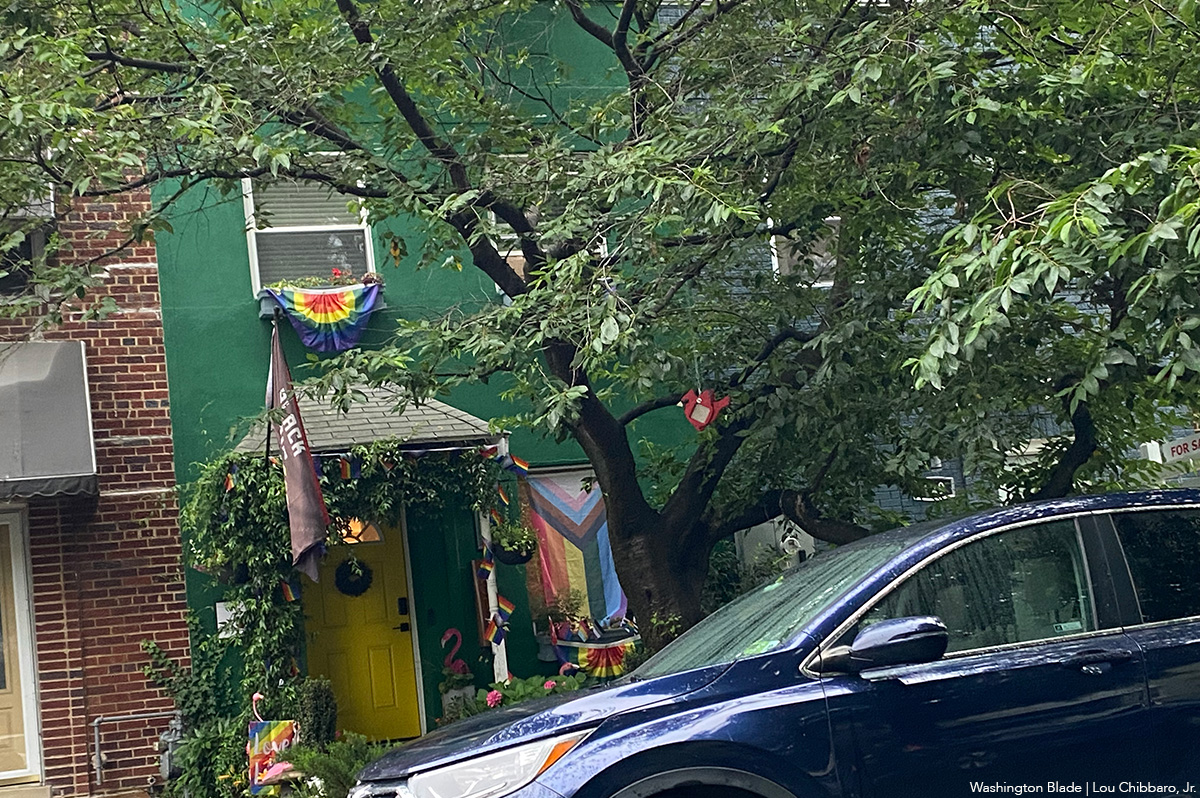
D.C. police announced on June 16 that they have arrested a 13-year-old juvenile male on a charge of Assault With Significant Bodily Injury for allegedly throwing a rock through the window of a house in Northeast D.C. and “striking the victim in the face.”
In a statement announcing the arrest, police said the incident took place on Friday, June 6, and “LGBTQ+ flags were displayed at the front of the home.”
A separate D.C. police incident report obtained by the Washington Blade states, “Victim 1 reports he was sitting in his living room at the listed location watching television when a rock came through the front window and struck him about his left eye. Victim 1 suffered a laceration under his left eye.”
The report adds, “Victim 1 states he observed Suspect 1 running away.”
According to the June 16 statement issued by police, “On Sunday, June 15, 2025, officers located the suspect and placed him under arrest. [A] 13-year-old juvenile male of Northeast D.C., was charged with Assault With Significant Bodily Injury (Hate/Bias).”
The statement says the house where the incident occurred is located on the 400 block of 20th Street, N.E.
Similar to statements D.C. police have issued regarding LGBTQ bias-related cases in the past, the statement announcing this case says that while the case is being investigated as being potentially motivated by hate or bias, that designation could be changed at any time during the investigation.
It adds that a hate crime designation by D.C. police may not be prosecuted as a hate crime by prosecutors. Under D.C. law, juvenile cases are prosecuted by the Office of the D.C. Attorney General.
Since court records for cases involving juveniles are sealed from public access, the Blade could not immediately determine whether prosecutors designated the case as a hate crime.
It also could not immediately be determined if the juvenile charged in the case was being held in detention while awaiting trial at juvenile court or whether he was released to a parent or guardian and whether a judge set any conditions for release.
The police statement concludes by saying that the department’s Special Liaison Branch, which includes the LGBT Liaison Unit, is assisting with the investigation.
District of Columbia
Drive with Pride in D.C.
A new Pride-themed license plate is now available in the District, with proceeds directly benefiting local LGBTQ organizations.
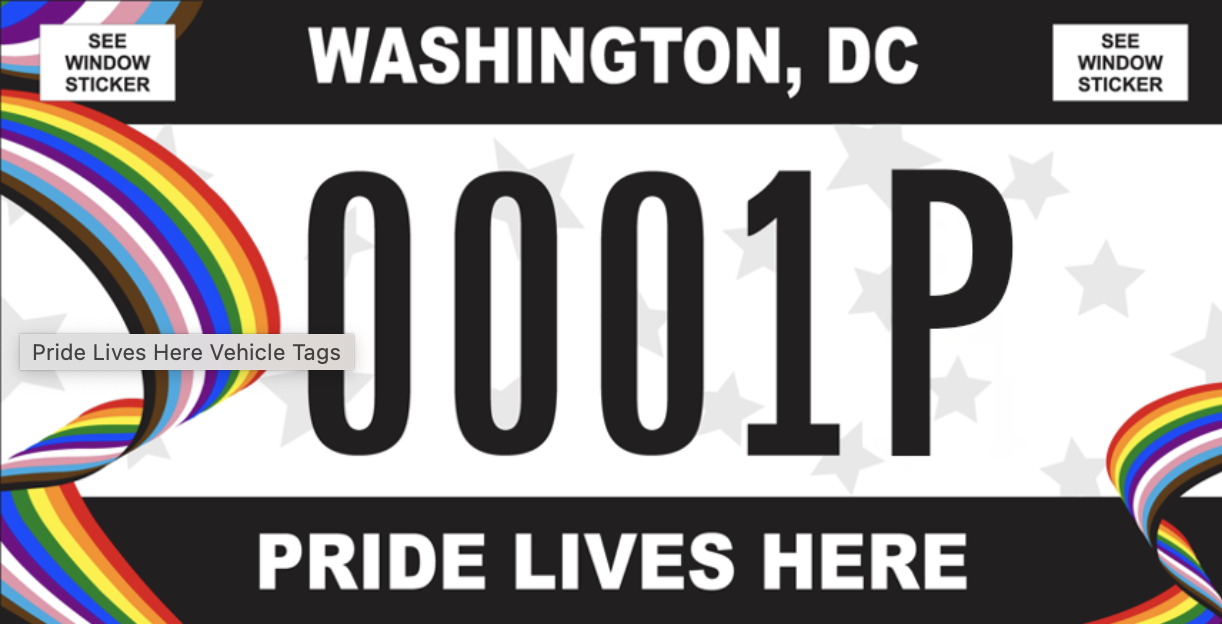
Just in time for Pride month, the D.C. Department of Motor Vehicles has partnered with the Mayor’s Office of LGBTQ Affairs to create a special “Pride Lives Here” license plate.
The plate, which was initially unveiled in February, has a one-time $25 application fee and a $20 annual display fee. Both fees will go directly to the Office of Lesbian, Gay, Bisexual, Transgender and Questioning Affairs Fund.
The MOLGBTQA Fund provides $1,000,000 annually to 25,000 residents through its grant program, funding a slew of LGBTQ organizations in the DMV area — including Capital Pride Alliance, Whitman-Walker, the D.C. Center for the LGBTQ Community, and the Washington Blade Foundation.
The license plate features an inclusive rainbow flag wrapping around the license numbers, with silver stars in the background — a tribute to both D.C.’s robust queer community and the resilience the LGBTQ community has shown.
The “Pride Lives Here” plate is one of only 13 specialty plates offered in the District, and the only one whose fees go directly to the LGBTQ community.
To apply for a Pride plate, visit the DC DMV’s website at https://dmv.dc.gov/

